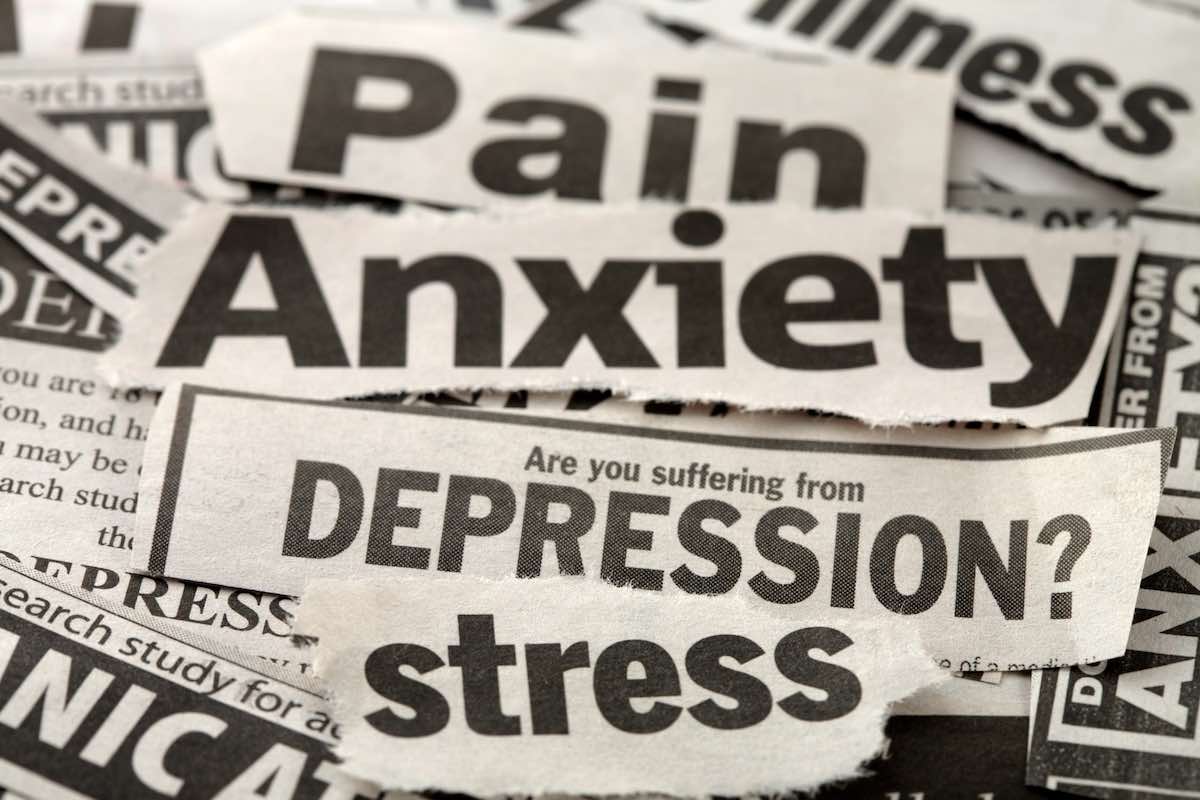
What Supplements Work Best for Anxiety and Depression?
Anxiety and depression are among the most common mental health conditions affecting millions of people worldwide. While therapy and medications are effective treatments, natural supplements can also help support mental well-being. At Cordial Psychiatry, we understand the importance of a holistic approach to mental health, including the use of evidence-based supplements. Below, we explore some of the most effective supplements that can aid in managing anxiety and depression.
Omega-3 Fatty Acids: Essential for Brain Health
Omega-3 fatty acids, found in fish oil, are crucial for brain function. Studies suggest that EPA and DHA, two key omega-3 components, help reduce symptoms of depression and anxiety. These essential fatty acids work by:
- Reducing inflammation in the brain
- Supporting neurotransmitter function
- Enhancing mood regulation
Best Sources of Omega-3s
- Fatty fish (salmon, mackerel, sardines)
- Fish oil supplements
- Flaxseeds and chia seeds
Magnesium: The Natural Calming Mineral
Magnesium plays a vital role in neurological function and helps regulate stress responses. Research shows that low magnesium levels are associated with increased anxiety and depression. This essential mineral supports relaxation by:
- Regulating the nervous system
- Reducing cortisol (stress hormone) levels
- Promoting better sleep quality
Best Magnesium Supplements
- Magnesium glycinate (best for anxiety)
- Magnesium citrate (supports digestion)
- Magnesium L-threonate (crosses the blood-brain barrier)
Vitamin D: The Sunshine Vitamin for Mental Health
A deficiency in vitamin D has been linked to mood disorders, including depression and anxiety. Since many people have insufficient vitamin D levels, supplementation can be beneficial. Vitamin D helps by:
- Boosting serotonin production
- Reducing inflammation in the brain
- Enhancing overall cognitive function
Best Sources of Vitamin D
- Sun exposure (15–30 minutes daily)
- Vitamin D3 supplements
- Fortified dairy and plant-based milk
Ashwagandha: The Adaptogenic Stress Reliever
Ashwagandha is an adaptogenic herb that helps the body manage stress more effectively. Studies have shown that it:
- Reduces cortisol levels
- Improves resilience to stress
- Enhances cognitive function and mental clarity
Best Forms of Ashwagandha
- Capsules (500–600 mg daily)
- Powder (mixed in tea or smoothies)
- Tinctures
L-Theanine: A Natural Relaxant from Green Tea
Found in green tea, L-theanine is an amino acid known for its calming effects. It works by:
- Increasing alpha brain waves (promotes relaxation without drowsiness)
- Enhancing GABA and dopamine production
- Reducing physiological symptoms of stress
Best L-Theanine Sources
- Green tea (matcha, sencha)
- L-theanine supplements (100–400 mg daily)
B Vitamins: Essential for Mental Well-Being
B vitamins, particularly B6, B9 (folate), and B12, play a crucial role in neurotransmitter production and energy metabolism. A deficiency in these vitamins is linked to increased anxiety and depressive symptoms. Benefits include:
- Supporting serotonin and dopamine production
- Reducing homocysteine levels (linked to mood disorders)
- Enhancing overall brain function
Best B Vitamin Sources
- Leafy greens (spinach, kale)
- Eggs, dairy, and meat
- B-complex supplements
5-HTP: Boosting Serotonin Levels Naturally
5-Hydroxytryptophan (5-HTP) is a naturally occurring amino acid that helps the body produce serotonin, the neurotransmitter responsible for mood regulation. Research indicates that 5-HTP supplements may help:
- Reduce symptoms of depression
- Alleviate anxiety
- Improve sleep quality
Best 5-HTP Dosage
- 50–300 mg daily (taken with food)
- Often combined with vitamin B6 for better absorption
Probiotics: Gut Health for Mental Health
There is a strong connection between gut health and mental well-being. Probiotics help maintain a balanced gut microbiome, which plays a role in reducing anxiety and depression by:
- Regulating inflammation
- Producing neurotransmitters like GABA and serotonin
- Supporting a healthy gut-brain axis
Best Probiotic Sources
- Fermented foods (yogurt, kimchi, sauerkraut)
- Probiotic supplements (containing Lactobacillus and Bifidobacterium strains)
Rhodiola Rosea: The Energy-Boosting Adaptogen
Rhodiola Rosea is another powerful adaptogen that enhances the body’s ability to handle stress. Studies have shown that it:
- Increases resilience to physical and mental stress
- Reduces symptoms of depression and fatigue
- Improves cognitive function and concentration
Best Rhodiola Rosea Dosage
- 200–600 mg daily (standardized extract with rosavins and salidroside)
CBD Oil: A Natural Anxiety Reliever
CBD (cannabidiol) oil has gained popularity as a natural remedy for anxiety. It works by interacting with the endocannabinoid system, helping to regulate mood and stress response. Benefits include:
- Reducing generalized anxiety symptoms
- Promoting relaxation and better sleep
- Supporting neurotransmitter balance
Best CBD Oil Usage
- Start with 10–20 mg daily
- Choose full-spectrum CBD for enhanced effects
FAQs About Supplements for Anxiety and Depression
Are natural supplements as effective as medication for anxiety and depression?
Supplements can help manage symptoms but should not replace prescribed medications without consulting a healthcare provider.
How long does it take for supplements to work?
Effects vary depending on the supplement. Some (like L-theanine) work within hours, while others (like omega-3s) take weeks to show benefits.
Can I take multiple supplements together?
Yes, but it’s essential to ensure they do not interact negatively. Consulting a healthcare professional can help create a safe regimen.
Are there any side effects of these supplements?
Most are well-tolerated, but some may cause mild digestive issues, drowsiness, or interactions with medications. Always start with a lower dose.
What is the best supplement for immediate anxiety relief?
L-theanine, magnesium, and CBD oil are known for their fast-acting calming effects.
Should I consult a doctor before taking supplements?
Yes, especially if you are on medication or have underlying health conditions.
At Cordial Psychiatry, we believe in an integrative approach to mental health. While supplements can be beneficial, they should be used alongside therapy, lifestyle changes, and professional medical guidance.

